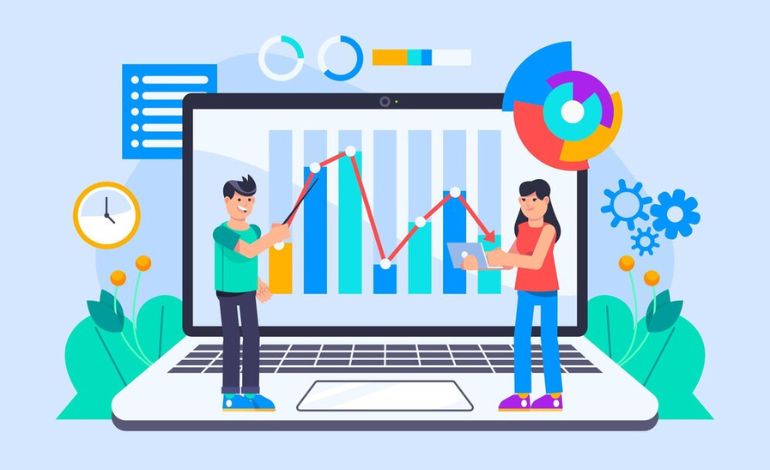Saving thousands of dollars can seem like an impossible feat, but with a little knowledge and effort, it can be achieved. In the world of digital advertising, businesses often spend money on Google Ads to capture the top spots in search results.
However, a significant portion of genuine audiences does not click on ads and instead scroll through the organic listings. This is where Search Engine Optimization (SEO) comes in.
SEO is a crucial aspect for businesses looking to establish a long-term online presence. Unlike Google Ads, SEO takes time to produce results, but once the gestation period is over, the rewards are exponential and come at no additional cost.
So, what is SEO all about?
SEO involves two main components: On-page SEO and off-page SEO:
On-page SEO is all about making your website as user- and search-engine-friendly as possible. It’s a crucial component of any effective SEO strategy since it ensures that your website is user-friendly, well-organized, and chock-full of relevant, high-quality material.
It’s crucial to concentrate on a few crucial areas in order to maximize the results of your on-page SEO efforts. First, check to see that your website is well-structured and simple to use, with a clear hierarchy of pages and an intuitive menu system. Visitors will find what they’re seeking more quickly and simply as a result, and search engines will find it simpler to crawl and index your website.
Next, make sure your videos and photos are optimized to load quickly. To do this, ensure that they are appropriately sized, labeled, and compressed. This will enhance user experience and raise the rank of your sites in search results.
Finally, pay attention to the caliber and applicability of your content. Make sure your content is well-written, useful, and interesting. Use pertinent keywords, meta descriptions, and header tags to assist search engines to understand what your pages are about.
You may raise the overall quality of your website and raise your chances of appearing higher in search results by concentrating on five important on-page SEO areas. So, be sure to pay attention to on-page SEO if you want your website to succeed.
Off-page SEO is about building your brand’s reputation and authority on the web. This includes various tactics to show search engines that your brand is trustworthy, relevant and an expert in your industry.
One of the most important components of off-page SEO is building high-quality backlinks from other websites, not only does this help drive traffic to your site, but it also shows search engines that other reputable sites find your content valuable and relevant.
Another important aspect of off-page SEO is increasing your brand’s social media presence. By regularly posting engaging and relevant content, you can build a strong online presence and connect with your target audience Not only does this help increase brand awareness, but it also shows search engines that your brand is active and relevant.
Ultimately, it’s important to focus on building a strong online reputation this means ensuring your brand is consistently providing high-quality, relevant content and responding professionally and constructively to any negative feedback. This way, you can prove to search engines that your brand is trustworthy and a leader in your industry Essentially, off-page SEO is about building a strong brand identity online.
By focusing on building backlinks, increasing your social media presence, and building a strong online reputation, you can help search engines see your brand as trustworthy, relevant, and authoritative, giving you a better chance of ranking higher in search results.
Why should you invest in SEO?
SEO offers numerous benefits that go beyond just appearing at the top of search results. Some of these benefits include:
- Increased website traffic: A well-optimized website is more likely to attract organic traffic, which is free and highly targeted.
- Increased brand visibility: By appearing at the top of search results, your brand is more likely to be seen by potential customers.
- Improved user experience: A website optimized for both users and search engines is more likely to provide a positive experience for users.
- Better ROI: Unlike paid advertising, SEO is a long-term investment that provides a higher return on investment over time.
- Competitive advantage: By investing in SEO, you can stay ahead of your competition and establish a strong online presence.
How to get started with SEO?
Getting started with SEO can seem overwhelming, but it doesn’t have to be. Here are some tips to help you get started:
- Conduct keyword research: Understanding what keywords and phrases your target audience is searching for are crucial to the success of your SEO efforts. Use tools like Google Keyword Planner to research keywords and create a list of keywords to target on your website.
- Optimize your website structure: Make sure your website has a clear and organized structure, with user-friendly navigation and easy-to-find content.
- Create high-quality content: High-quality content is essential for both users and search engines. Make sure your content is relevant, informative, and well-written.
- Build backlinks: Building backlinks from high-quality websites is important for off-page SEO. Reach out to other websites in your industry and see if they would be willing to link back to your site.
- Monitor your progress: Use tools like Google Analytics to track your website’s traffic and monitor your progress. This will help you make any necessary changes and adjust your strategy as needed.
SEO is a crucial aspect of digital marketing for businesses looking to establish a long-term online presence. By investing in SEO, businesses can benefit from increased website traffic, brand visibility, improved user experience, better ROI, and competitive advantage.
View this post on Instagram









